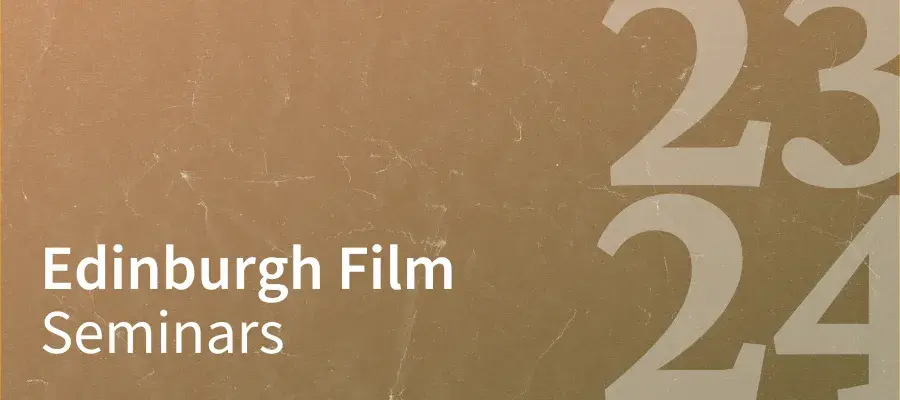In brief
Date - 26 March 2024
Venue - LG.08, 40 George Square
Speaker - Dr Miranda Anderson (University of Edinburgh)
Title - Fission-Fusion in Contemporary Film: A Case Study of Steve McQueen’s Small Axe Series
Abstract
by Miranda Anderson
The mind is often thought of as equivalent to the brain: but it is just not as simple as that! Instead, our minds and selves extend across brain, body and world. Fluctuating configurations of elements from across the domains of brain, body and world compose our minds and selves, in an infinite process I term ‘fission-fusion’.
The term fission-fusion illuminates our capacity to extend beyond the confines of our own biologically-based cognitive horizons, as we perpetually fuse with and separate from elements of the ever-changing arrays constituting other minds, selves and the world around us. This new understanding of the mind reveals the nature and value of a range of artworks, including films.
Films illuminate psychophysiological phenomena through immersing us and providing a means of reflection. This talk explores ways in which language, all kinds of gestures and expressions, objects and environments, and music and dance, constitute and constrain minds and selves in film-worlds, our experiencing of those film-worlds and of our life-worlds more generally.
I explore how through interweaving these modes in Steve McQueen’s Small Axe series, and through its use of film techniques, it provides vivid experiences of the ways in which rich mixes of bodily and environmental factors compose the minds and selves of the people and the world depicted on screen, the phenomenon I term fission-fusion (Anderson 2015, 2022).
Through sampling excerpts from Small Axe, this paper also makes the case for understanding the films' relation to contemporary culture and history, in terms of the fission-fusion concept. Here the term fission-fusion, which has emerged from scientific studies of social and physical processes, is adapted to enable development of the critical concept of intersectionality, also through my drawing on cognitive scientific research on the distributed nature of the mind across brain, body and world.
I start by explaining the term and the ways in which it expands our understanding of what constitutes minds and selves, before evidencing how fission-fusion dynamics play out both in the making of films, and through the characters and cultural forms they represent.
After exploring how and why the Small Axe series was made, I explore a series of scenes from the films – focusing on Education’s multilayered narratives and its relation to McQueen’s film Grenfell; Red, White and Blue’s telling gazes; Mangrove’s world-expanding narratives; and Lovers Rock’s liberating spaces – in order to illuminate the series' significance and demonstrate the workings of fission-fusion dynamics.
About the speaker
Dr Miranda Anderson is an Honorary Fellow of the University of Edinburgh and Associate Lecturer with the Open University. She believes in the mind-expanding value of engagement with the arts and humanities, and her research focuses on cognitive approaches to literature and culture. She has led the development of distributed cognition as a framework that illuminates our understanding of literature and culture. She is currently developing the fission-fusion concept of the mind and self through working on several articles about contemporary and historical literature and culture.
She is the author of The Renaissance Extended Mind (2015) and co-editor of The Book of the Mirror (2007) and four volumes on Distributed Cognition between Classical Antiquity and Modernism (2018-20).
How to attend
This event is free to join, and open to all. Spaces are limited, so you can reserve your spot on Eventbrite.
Book your free ticket on Eventbrite
About the Edinburgh Film Seminars
Each semester, the Edinburgh Film Seminars bring a broad range of film academics and experts to the University of Edinburgh.
Are you interested in studying film at Edinburgh?
Exploring crucial concepts in the development of film theory and film-philosophy, one one-year taught Masters programme (MSc) centres on the criticism, analysis and interpretation of auteur cinema, with a focus on European and American film.
We also supervise PhD research in film theory, film-philosophy, various national cinemas, the work of individual filmmakers, and cinema in relation to other art forms.


